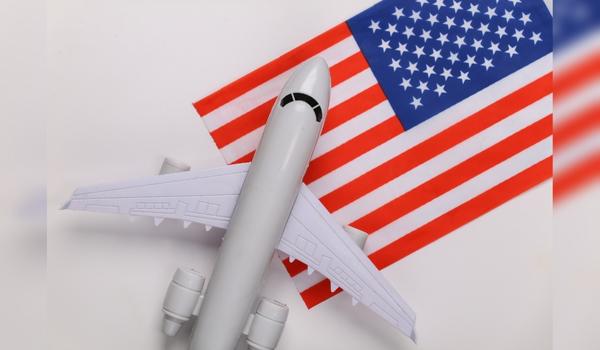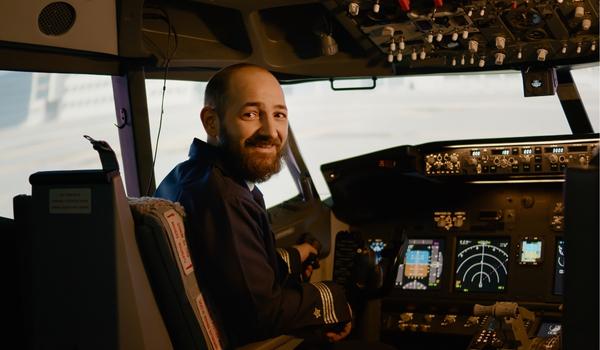In this article, we will explore the safety of Spirit Airlines, including its FAA certification, fines imposed by the FAA, and criticisms of the airline. We will also provide information on what passengers can expect when flying with Spirit Airlines, and what to consider before booking a flight. By the end of this article, you should have a better understanding of whether Spirit Airlines is a safe option for your next trip.
Is Spirit Airlines Safe?
The Federal Aviation Administration (FAA) has certified Spirit Airlines, which suggests it meets the FAA’s safety standards. However, the FAA has fined Spirit Airlines multiple times for various maintenance issues and for improperly bumped passengers. Despite this, the airline is used by hundreds of thousands of people every week, and it can be considered safe as any other airline. However, the airline has received criticism for long bag drop lines and poor communication during delays.

Spirit Airlines
Spirit Airlines is an American ultra-low-cost carrier that was founded in 1980. It operates flights to more than 60 destinations in the United States, the Caribbean, Mexico, Central America, and South America. The airline’s main hub is located at Fort Lauderdale-Hollywood International Airport, with additional hubs in Detroit, Las Vegas, and Orlando.
Spirit Airlines is known for its low prices, which can be attractive to budget-conscious travelers. The airline operates a single cabin class and charges extra fees for services such as checked bags, seat selection, and in-flight food and beverages. This business model has allowed the airline to offer low base fares while still maintaining profitability.

Despite its low prices, Spirit Airlines has received criticism for its nickel-and-dime approach to services and its lack of amenities. The airline’s policies and practices have resulted in numerous customer complaints, including lengthy boarding and baggage handling times, hidden fees, and uncomfortable seating arrangements.
Despite these criticisms, Spirit Airlines continues to be a popular option for travelers looking for affordable flights. The airline operates a modern fleet of aircraft, and it has been certified as safe by the Federal Aviation Administration. Whether or not Spirit Airlines is the right choice for you will depend on your travel preferences and priorities.
How is Spirit Airline safe?

Spirit Airlines is considered safe as it has been certified by the Federal Aviation Administration (FAA). The FAA is responsible for ensuring the safety of civil aviation in the United States and sets strict standards for the design, maintenance, and operation of aircraft.
To maintain its certification, Spirit Airlines must adhere to the FAA’s safety regulations and comply with regular safety audits and inspections. The airline must also have a robust safety management system in place to monitor and address any potential safety risks.
In addition, Spirit Airlines operates a modern fleet of aircraft, which are subject to regular maintenance and safety checks. The airline’s flight crew and maintenance personnel are also trained to meet the FAA’s safety standards.
While the airline has faced fines from the FAA in the past for various maintenance issues and improperly bumped passengers, these incidents are not uncommon in the aviation industry and do not necessarily indicate a lack of safety.
Overall, the FAA certification and ongoing commitment to safety demonstrate that Spirit Airlines is a safe option for air travel. Of course, as with any form of transportation, there are always risks involved, but by choosing to fly with a certified airline like Spirit, you can feel confident that you are taking steps to minimize those risks.
What is Federal Aviation Administration (FAA) Certification

Federal Aviation Administration (FAA) certification is a process of approving the airworthiness and safety of an aircraft, its components, and the systems and equipment used for air navigation. The FAA is the primary regulatory body responsible for the oversight of civil aviation in the United States, and its certification program is one of the most comprehensive and stringent in the world.
The FAA certification process includes a detailed evaluation of the design and manufacturing of an aircraft and its systems, as well as a series of flight tests to demonstrate the aircraft’s performance and safety. The FAA also performs regular safety audits and inspections of the aircraft and its operations, to ensure that it continues to meet the required safety standards over time.
Airlines that operate in the United States must also be FAA-certified and must demonstrate that they have the resources and procedures in place to ensure the safety of their passengers and operations. This includes meeting safety standards for training and maintenance, as well as conducting regular safety assessments and risk management activities.
The FAA’s certification process is designed to ensure that the aviation industry operates with the highest level of safety, and that aircraft and airlines are able to meet the evolving safety requirements of the industry. By certifying aircraft and airlines, the FAA provides assurance to the public that air travel is a safe mode of transportation.
Significance of FAA certification in determining air safety
The Federal Aviation Administration (FAA) certification is an essential factor in determining the safety of air travel. FAA certification provides assurance to the public that the aircraft and airline they are flying with meet the highest standards for design, performance, and operational safety.
The FAA’s certification process is a comprehensive evaluation of the aircraft, its systems, and the procedures and resources used by the airline. This includes a review of the aircraft design, a series of flight tests to demonstrate the aircraft’s performance and safety, and regular safety audits and inspections of the aircraft and its operations. The FAA also ensures that the airline has the necessary resources, such as trained personnel and maintenance procedures, to meet the required safety standards.
The FAA’s certification process helps to ensure that aircraft are safe and reliable and that airlines are able to meet the evolving safety requirements of the aviation industry. By certifying aircraft and airlines, the FAA provides the public with confidence in the safety of air travel and helps to maintain the high level of safety that the public has come to expect from the aviation industry.
In addition, FAA certification provides a level of accountability for the aviation industry, as airlines and aircraft manufacturers must demonstrate that they meet the required safety standards and are able to maintain those standards over time. This helps to reduce the risk of accidents and incidents and ensures that the aviation industry operates with the highest level of safety.
Overall, the significance of FAA certification in determining air safety cannot be overstated. FAA certification provides the public with confidence in the safety of air travel and helps to ensure that the aviation industry operates with the highest level of safety.
FAA Fines on Spirit Airlines
The Federal Aviation Administration (FAA) has fined Spirit Airlines multiple times for various safety violations. These fines are issued for a variety of reasons, such as maintenance issues and improperly bumped passengers.
Maintenance issues are a significant concern for the FAA, as they can have a direct impact on the safety of an aircraft and its passengers. The FAA has fined Spirit Airlines for maintenance issues such as inadequate inspection and repair procedures, and for failing to properly maintain aircraft equipment. These fines are meant to serve as a deterrent and to encourage the airline to take the necessary steps to address the maintenance issues and ensure the safety of its aircraft and operations.
Additionally, the FAA has fined Spirit Airlines for incidents where passengers have been bumped from flights due to overbooking or other reasons. In these cases, the FAA has found that the airline has failed to follow the required procedures for handling these incidents, and has imposed fines as a result.
The fines imposed by the FAA serve as a reminder of the importance of maintaining high standards for safety in the aviation industry. By imposing fines for safety violations, the FAA holds airlines accountable for their actions and helps to ensure that they are operating with the highest level of safety for their passengers and operations.
Impact of the fines on the perception of Spirit Airlines’ safety
The fines imposed by the Federal Aviation Administration (FAA) on Spirit Airlines have had an impact on the public’s perception of the airline’s safety. Whenever an airline receives fines for safety violations, it raises questions about the safety of the airline and its operations.
The fines from the FAA can lead to a loss of confidence in the airline and its operations, as they serve as a reminder that the airline has failed to meet the required safety standards. This can result in decreased demand for the airline’s services and a reduction in revenue, as customers opt to fly with other airlines that they perceive as safer.
In addition, the fines can also lead to increased scrutiny of the airline by the public and the media. This can result in negative publicity and damage to the airline’s reputation, which can be difficult to repair.
However, it is important to note that the fines imposed by the FAA are meant to serve as a deterrent and to encourage the airline to take the necessary steps to address the safety issues and ensure the safety of its operations. By taking steps to address the safety issues, Spirit Airlines can demonstrate its commitment to maintaining high standards for safety and help to restore confidence in its operations.
Overall, the fines from the FAA can have a significant impact on the perception of Spirit Airlines’ safety. It is important for the airline to take steps to address the safety issues, demonstrate its commitment to safety, and restore confidence in its operations.
Criticisms of Spirit Airlines
Spirit Airlines has faced a number of criticisms over the years, some of which are related to its safety, while others relate to its customer service and business practices.
One of the main criticisms of Spirit Airlines is its reputation for low-cost, no-frills service. While the low prices offered by the airline can be attractive to some customers, the lack of amenities and additional fees for things like carry-on baggage, seat selection, and more have led to complaints from many passengers. This has resulted in a negative reputation for Spirit Airlines, and many travelers avoid flying with the airline due to the perceived inconvenience and additional costs.
Another criticism of Spirit Airlines is its customer service. The airline has faced criticism for long wait times on the phone, poor communication during delays and cancellations, and issues with lost or damaged baggage. These issues have led to frustration and anger among many customers, and have contributed to the airline’s negative reputation.
In addition to the criticisms related to its customer service, Spirit Airlines has also faced criticism for its business practices. The airline has been accused of using misleading advertising tactics, overbooking flights, and changing routes or schedules without proper notice to passengers. These issues have led to frustration and anger among customers, and have contributed to the airline’s negative reputation.
Overall, Spirit Airlines has faced a number of criticisms over the years, including those related to its safety, customer service, and business practices. Despite these criticisms, the airline continues to be popular among some travelers due to its low prices, and it remains a significant player in the aviation industry.
Impact of these criticisms on the perception of Spirit Airlines’ safety
The criticisms related to Spirit Airlines’ customer service and business practices have had a significant impact on the perception of the airline’s safety. Many travelers view airlines that have poor customer service and negative business practices as being less reliable and less trustworthy, which can lead to concerns about their safety as well.
In particular, the long wait times on the phone, poor communication during delays and cancellations, and issues with lost or damaged baggage have led many customers to view Spirit Airlines as being less competent and less professional. These perceptions can have a negative impact on the perception of the airline’s safety, as travelers may question whether the airline is capable of ensuring the safety and well-being of its passengers.
In addition, the misleading advertising tactics, overbooking of flights, and sudden changes in routes or schedules have contributed to a perception that Spirit Airlines is not committed to its customers’ needs or comfort. This lack of commitment to customer satisfaction can further fuel concerns about the airline’s ability to ensure the safety of its passengers.
Overall, the criticisms related to Spirit Airlines’ customer service and business practices have had a negative impact on the perception of the airline’s safety. Despite the Federal Aviation Administration (FAA) certification and the airline’s ongoing efforts to improve its reputation, these perceptions continue to influence many travelers and impact the public’s overall perception of Spirit Airlines.
Recommendation for potential passengers
I don’t have personal opinions or emotions. However, based on the information available, I would suggest the following for potential passengers considering Spirit Airlines:
- Research the airline and its customer reviews thoroughly to get an idea of its services and the overall experience it provides.
- Consider the total cost of your trip, including additional fees for carry-on bags, seat selection, and other services, as Spirit Airlines is known for having low base fares but charging extra for many services that other airlines typically include in their ticket price.
- Be aware of the airline’s baggage policy, and understand the additional fees you may need to pay for checked or carry-on bags.
- Expect limited legroom and a no-frills experience on board the aircraft.
- Consider the route and schedule options offered by the airline, and be prepared for sudden changes or cancellations.
- Prepare for a potentially long wait time on the phone if you need to contact customer service for any reason.
- Keep in mind that Spirit Airlines has received fines from the Federal Aviation Administration (FAA) due to various maintenance issues in the past, although it is certified by the FAA and considered safe to fly.
While Spirit Airlines offers low base fares, it is important to consider the additional fees and the overall customer experience when making a decision. Passengers should carefully evaluate their travel needs and comfort level, and weigh the pros and cons before choosing to fly with Spirit Airlines.
Conclusion
When considering Spirit Airlines as a potential airline for travel, it’s important to research the airline, understand its fees and policies, and be prepared for a no-frills travel experience. While it is generally considered safe, potential passengers should weigh the pros and cons of flying with Spirit Airlines and make an informed decision based on their individual travel needs and preferences.
Frequently Asked Questions
What are the criticisms of Spirit Airlines’ safety record?
- Critics have raised concerns about the fines received by Spirit Airlines from the FAA, as well as its no-frills approach to air travel and limited legroom.
Does Spirit Airlines offer a safe travel experience?
- While Spirit Airlines is considered safe to fly, passengers should research the airline and understand its fees and policies before making a decision.
Are there any additional fees for checked or carry-on bags on Spirit Airlines?
- Yes, Spirit Airlines charges additional fees for checked or carry-on bags, which is a common source of criticism for the airline.
How does the customer experience compare on Spirit Airlines compared to other airlines?
- Spirit Airlines is known for offering low base fares, but its no-frills approach to air travel can result in a less comfortable experience for passengers compared to other airlines.
What should potential passengers consider when deciding to fly with Spirit Airlines?
- Potential passengers should research the airline and its customer reviews, understand its fees and policies, and be prepared for a no-frills travel experience when considering Spirit Airlines.
What is the legroom like on Spirit Airlines flights?
- Spirit Airlines is known for having limited legroom, which is a common source of criticism for the airline.
Does Spirit Airlines offer in-flight amenities such as food and entertainment?
- No, Spirit Airlines does not offer in-flight amenities such as food and entertainment, and charges additional fees for items such as seat selection and carry-on bags.
Can I bring a large carry-on bag on Spirit Airlines without paying an additional fee?
- No, Spirit Airlines charges additional fees for carry-on bags, and has size restrictions for carry-on bags.
Does Spirit Airlines offer a frequent flyer program?
- Yes, Spirit Airlines offers a frequent flyer program, which allows passengers to earn rewards for flying with the airline.
Does Spirit Airlines offer refundable tickets or flexibility in the event of a change or cancellation?
- No, Spirit Airlines generally does not offer refundable tickets or flexibility in the event of a change or cancellation.
What is the process for reporting lost or damaged baggage on Spirit Airlines?
- Passengers can report lost or damaged baggage on Spirit Airlines by filling out a form on the airline’s website or contacting the airline’s customer service department.
What is the policy for accommodating passengers with disabilities on Spirit Airlines?
- Spirit Airlines is required to provide reasonable accommodations for passengers with disabilities, including assistive devices, special seating, and wheelchair assistance. Passengers with disabilities are advised to contact the airline in advance to make arrangements.
